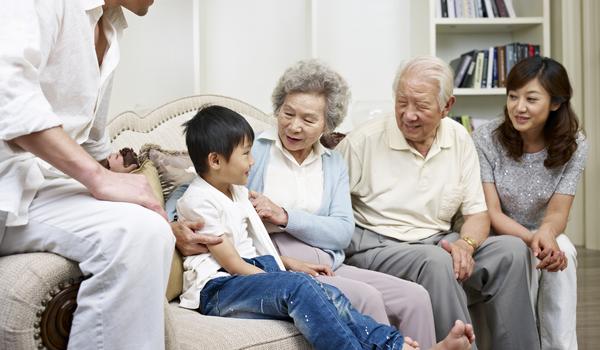Questions your children may ask you

You may be concerned about how your children or grandchildren will react to your cancer diagnosis. And, while you might wish to protect them from the difficult news, talking openly with them about cancer will provide the clarity and honesty they will need for support.1,2
Just how much children need to know depends on their age and level of maturity.1
You will probably find it helpful to anticipate likely questions and to prepare basic information before initiating the conversation.2 It is important to adjust the words you use according to the child’s age.3
Young children need reassurance on the following points:
- It is not their fault you are ill3–5
- They will not get cancer too3–6
- What cancer is6
- Whether you are at risk of dying3
- You will still have time for them6
- Someone will take care of them4
- You still love them4
While older children and teenagers may want to know:
- What cancer is6
- Whether you are at risk of dying3
- How they can help4
- That someone will take care of them4
- Whether they can still spend time with their friends4
When you answer their questions:
- Use clear and direct language3
- Explain what cancer is, where your cancer is in your body, and how treatment will help6
- Take your time; give the information gradually, not all at once7
- Admit if you do not know an answer6,7
- Encourage children and teenagers to ask questions and express their feelings4
- Reassure them that they will continue to be loved and cared for4,7
- Use a doll or teddy bear to explain where your cancer is, if you are talking to young children2
- Bring a book about cancer or treatment along if you are telling older children or pre-teens; tell teenagers about available sources of information2
If you are feeling too overwhelmed or depressed to speak with your children, ask for support from a family member or friend, or from a healthcare professional or counsellor.1,3
Glossary